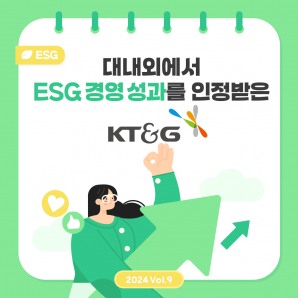
Ironically, this very attention could delay the launch of their joint venture. The Korea Fair Trade Commission (KFTC) is closely scrutinizing the merger, considering its substantial impact on the domestic e-commerce market. Given that some merger reviews have taken up to a year, it remains uncertain when Shinsegae and Alibaba will fully embark on their joint venture.
According to the KFTC on the 31st, the regulatory body is currently reviewing the merger application submitted by Shinsegae and Alibaba on January 24. A KFTC official stated, “There are extensive materials to examine, and we are continuously requesting supplementary documents. While these requests do not count toward the review period, the review process itself has begun.”
The merger review process generally lasts 30 days from the date of filing, with possible extensions of up to 90 days. However, the time taken to submit supplementary documents is not included, meaning the review could take longer.
In fact, some reviews have taken nearly a year. The KFTC granted conditional approval for the merger between Kakao and SM Entertainment after a year of review. Similarly, Korean Air’s merger with Asiana Airlines, filed in 2020, took over a year to receive conditional approval.
Despite the additional document requests, the KFTC clarified that this is a standard procedure and does not necessarily indicate a prolonged review process. The official stated, “If no further supplementary materials are needed, the review could conclude more quickly. While the process may take up to a year, it is currently difficult to predict when it will be completed.”
The KFTC is particularly focused on assessing the impact of this merger on South Korea’s e-commerce market.
A KFTC official noted, “Alibaba holds a significant share of the cross-border e-commerce market in South Korea, and there are concerns that this merger could further increase its market dominance. We are carefully evaluating this aspect, along with other relevant factors.”
AliExpress, a subsidiary of Alibaba, reportedly accounts for nearly half of South Korea’s cross-border e-commerce market and continues to expand its presence in the domestic e-commerce sector. Although Alibaba has operated in South Korea since 2010, its market influence has grown significantly since establishing a Korean subsidiary in 2023.
Given these concerns, the KFTC is approaching this merger with caution. It appears that the regulatory body is particularly focused on curbing AliExpress’s expansion in the domestic e-commerce market rather than Gmarket. If Shinsegae Group proceeds with the merger, AliExpress’s influence in the South Korean e-commerce market is expected to grow even further.
Lei Zhang, CEO of AliExpress Korea, stated during a press conference with South Korean journalists in September last year, “If we can enhance consumer experience and realize the ‘all-in-one AliExpress,’ we will pursue all possible opportunities, including M&A. If we successfully meet the demands of Korean consumers, we aim to attract over 50% of domestic online users within the next three to five years.” Three months after this statement, in December 2024, the news of Shinsegae and Alibaba’s joint venture surfaced.
Once the KFTC review is complete, Shinsegae and Alibaba Group will establish their joint venture, Grand Opus Holdings, which will hold 100% ownership of both Gmarket and AliExpress Korea as subsidiaries.
Despite this, both platforms will continue to operate independently, as they do now.
A Shinsegae representative stated, “Once the KFTC review is complete, we will proceed with the necessary steps, such as appointing the CEO and CFO of the joint venture.”
Industry insiders believe that even if the joint venture is established, it may not significantly impact the domestic e-commerce market beyond an increase in market share figures. One industry expert remarked, “The synergy between AliExpress and Gmarket is expected to be minimal. Apart from providing Gmarket’s sellers with an opportunity to expand globally through AliExpress, there are no particularly attractive aspects that would significantly impact the market.”
Additionally, there is speculation that Shinsegae Chairman Jeong Yong-jin may be preparing to sell Gmarket to Alibaba. Acquired by Shinsegae for KRW 3.44 trillion, Gmarket has struggled with financial losses since the 2021 acquisition. It has failed to create synergy with Shinsegae’s other e-commerce platform, SSG.com, and has become a financial burden. As a result, there is growing speculation that Shinsegae may be looking to offload Gmarket.
Industry insiders believe that even if the joint venture is established, it may not significantly impact the domestic e-commerce market beyond an increase in market share figures. One industry expert remarked, “The synergy between AliExpress and Gmarket is expected to be minimal. Apart from providing Gmarket’s sellers with an opportunity to expand globally through AliExpress, there are no particularly attractive aspects that would significantly impact the market.”
Additionally, there is speculation that Shinsegae Chairman Jeong Yong-jin may be preparing to sell Gmarket to Alibaba. Acquired by Shinsegae for KRW 3.44 trillion, Gmarket has struggled with financial losses since the 2021 acquisition. It has failed to create synergy with Shinsegae’s other e-commerce platform, SSG.com, and has become a financial burden. As a result, there is growing speculation that Shinsegae may be looking to offload Gmarket.
Park seulgi (seulgi@fntimes.com)



























![[삼성전자의 와신상담] ② 삼성전자 바꾸는 이재용 3픽 '전장‧디스플레이‧로봇'](https://cfnimage.commutil.kr/phpwas/restmb_setimgmake.php?pp=006&w=69&h=45&m=5&simg=202504011507190072374925877362115218260.jpg&nmt=18)

![[DQN] 은행권 건전성지표 하락세…산업은행, BIS비율 최하위](https://cfnimage.commutil.kr/phpwas/restmb_setimgmake.php?pp=006&w=69&h=45&m=5&simg=20250331144322006145e6e69892f2208613587.jpg&nmt=18)
![[단독] 대우건설 자회사 대우에스티, 지난해 공정위·서울시 제재](https://cfnimage.commutil.kr/phpwas/restmb_setimgmake.php?pp=006&w=69&h=45&m=5&simg=2025040212332508946e41d7fc6c2183101242202.jpg&nmt=18)




![[삼성전자의 와신상담] ③ 8년간 묵혀둔 곳간 올핸 열릴까?...삼성전자 초대형 M&A 가능성](https://cfnimage.commutil.kr/phpwas/restmb_setimgmake.php?pp=006&w=69&h=45&m=5&simg=202504021558020204074925877362115218260.jpg&nmt=18)
![[DCM] 트럼프 관세 우려...’눈치게임’ 채권시장](https://cfnimage.commutil.kr/phpwas/restmb_setimgmake.php?pp=006&w=69&h=45&m=5&simg=2025040120244107244a837df64942192515869.jpg&nmt=18)












![[카드뉴스] KT&G ‘Global Jr. Committee’, 조직문화 혁신 방안 제언](https://cfnimage.commutil.kr/phpwas/restmb_setimgmake.php?pp=006&w=298&h=298&m=1&simg=202503261121571288de68fcbb3512411124362_0.png&nmt=18)


![[카드뉴스] 국립생태원과 함께 환경보호 활동 강화하는 KT&G](https://cfnimage.commutil.kr/phpwas/restmb_setimgmake.php?pp=006&w=298&h=298&m=1&simg=202403221529138957c1c16452b0175114235199_0.png&nmt=18)
![[카드뉴스] 신생아 특례 대출 조건, 한도, 금리, 신청방법 등 총정리...연 1%대, 최대 5억](https://cfnimage.commutil.kr/phpwas/restmb_setimgmake.php?pp=006&w=298&h=298&m=1&simg=20240131105228940de68fcbb35175114235199_0.jpg&nmt=18)
![[신간] 리빌딩 코리아 - 피크 코리아 극복을 위한 생산성 주도 성장 전략](https://cfnimage.commutil.kr/phpwas/restmb_setimgmake.php?pp=006&w=81&h=123&m=5&simg=2025032814555807705f8caa4a5ce12411124362.jpg&nmt=18)
![[신간] 지속 가능 경영, 보고와 검증](https://cfnimage.commutil.kr/phpwas/restmb_setimgmake.php?pp=006&w=81&h=123&m=5&simg=2025011710043006774f8caa4a5ce12411124362.jpg&nmt=18)
![[서평] 추세 매매의 대가들...추세추종 투자전략의 대가 14인 인터뷰](https://cfnimage.commutil.kr/phpwas/restmb_setimgmake.php?pp=006&w=81&h=123&m=5&simg=2023102410444004986c1c16452b0175114235199.jpg&nmt=18)

![[신간] 똑똑한 금융생활...건전한 투자와 건강한 재무설계 지침서](https://cfnimage.commutil.kr/phpwas/restmb_setimgmake.php?pp=006&w=81&h=123&m=5&simg=2025031015443705043c1c16452b012411124362.jpg&nmt=18)

![[카드뉴스] KT&G ‘Global Jr. Committee’, 조직문화 혁신 방안 제언](https://cfnimage.commutil.kr/phpwas/restmb_setimgmake.php?pp=006&w=89&h=45&m=1&simg=202503261121571288de68fcbb3512411124362_0.png&nmt=18)
![[AD] 기아, 혁신적 콤팩트 SUV ‘시로스’ 세계 최초 공개](https://cfnimage.commutil.kr/phpwas/restmb_setimgmake.php?pp=006&w=89&h=45&m=1&simg=2024123113461807771f9c516e42f12411124362.jpg&nmt=18)
![[AD] 아이오닉5 '최고 고도차 주행 전기차' 기네스북 올랐다...압도적 전기차 입증](https://cfnimage.commutil.kr/phpwas/restmb_setimgmake.php?pp=006&w=89&h=45&m=1&simg=2024123113204707739f9c516e42f12411124362.jpg&nmt=18)




